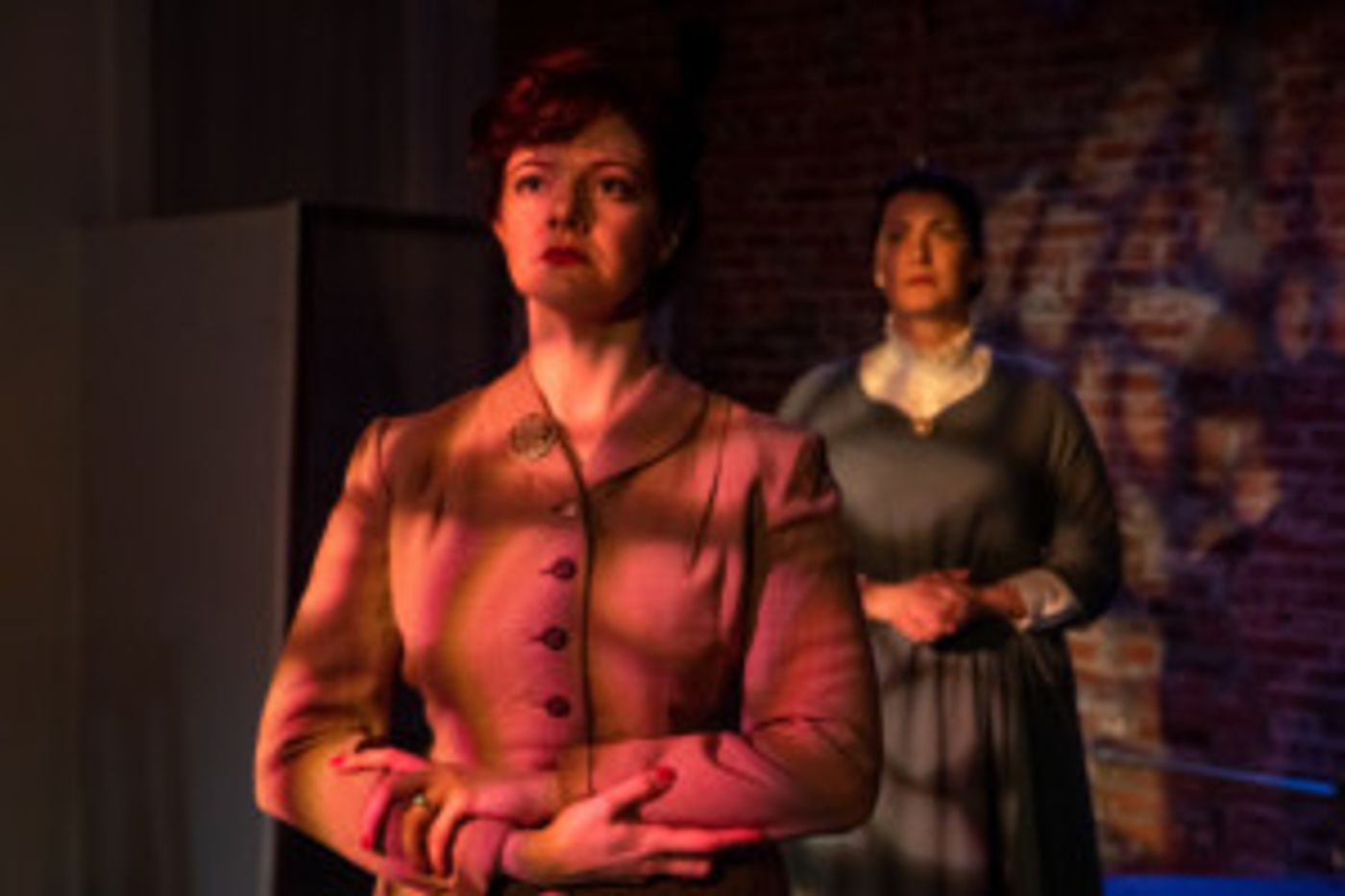Review: GWEN AND IDA: THE OBJECT IS OF NO IMPORTANCE at Nu Sass At Caos On F
Two strong female performances life a new play about female artists.

GWEN AND IDA is a work of fiction, a fantasy. Any resemblance to actual human beings is purely coincidental," concludes the program for Gwen and Ida: The Object is of No Importance, currently at Caos on F Street. Of course, the lives of painter Gwen John and actor/director Ida Lupino could each make a full length documentary of serious importance with slides of John's elegant paintings and clips of Lupino's always forceful acting (They Drive by Night [1940], While the City Sleeps [1956]) and the 1964 episode she directed of "The Twilight Zone" ("The Masks"), the only woman ever to do so. Instead, David S. Kessler has written his fantasy which cannot help but distort the significance of the women's lives and careers.
Set for the most part in Jack Warner's office in 1953, the fantasizing starts when Ida Lupino (1918-1995) pitches the studio head with whom she has often feuded a directorial vehicle for herself, a bio-pic of Welsh painter, Gwen John (1876-1939). Eventually, John "comes to life," and the fantasizing continues as the two women take turns narrating facts about each other and then arguing implausibly over perceptions. Kessler has written engrossing monologues for each of the women, more than once. Research on Lupino and John has taken place; John's relationship with Rodin and her painting techniques are naturally dramatic as are Lupino's efforts to breathe realism into B-movie scripts along with her growing aptitude for directing. But inevitably, Kessler interrupts the women to dramatize the pseudo-conflicts activating his fantasy, not to mention the schtick with Jack Warner. So two female artists, each ahead of her time and talented, once again heel to a male notion of their value, strengths, weaknesses.
Aubri O'Connor and Rebecca Ellis do yeoman work as Gwen and Ida, respectively; Ellis does more--playing several actual characters in Gwen John's life and enlivening a few sections of the play. A standout example takes place when, with no more than some folded hands and a few facial muscles, Ellis shape-shifts into a Mother Superior who befriended John. O'Connor effectively switches quickly from Gwen, the monologuist, reciting facts from her life, to Gwen, the emotionally strained outsider who stalked Rodin after he dumped her and became reclusive as she aged. Director Lynn Sharp Spears, working in this cruelly small space, enables both actresses to achieve clarity despite the apparent fact that the playwright (or someone connected with this production) doesn't think the title characters resemble human beings. Matty Griffiths as Jack does well what little he has to do; Warner shouts profanity and Yiddish and reinforces clichés proving how men mistreat women in general and what a jerk Jack Warner was in particular.
Bridgid Burge perfectly dresses Ida in a prim, mid-century suit, Gwen in a fluid, turn of the 20th century artist's smock, and the set with an excellent desk befitting a mogul's office.
Nu Sass and Uncle Funsy present Gwen and Ida: The Object is of No Importance through June 29. For tickets and information, visit nusass.com.
Photo Credit: Tony Hitchcock Photography
Reader Reviews
Videos

